Delhi pollution: Face masks run out as residents panic
- Published
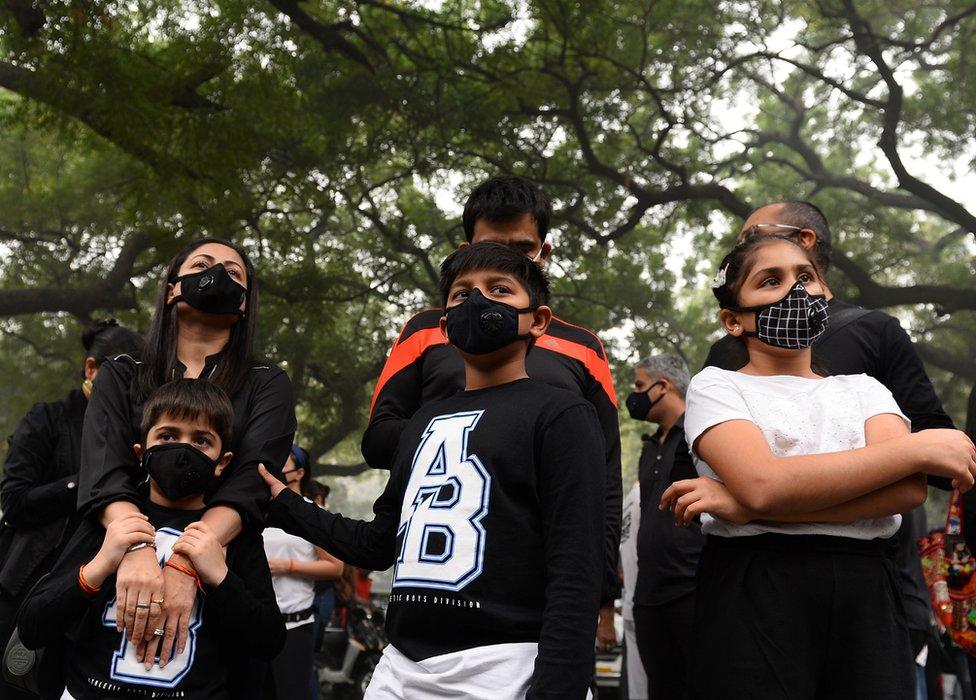
People in Delhi say it's their right to breathe clean air
Surging pollution levels are driving panicked residents of the Indian capital, Delhi, to queue up for face masks, leading to shortages across the city, as the BBC's Vikas Pandey reports.
"I am ready to wait for an entire day, but I am not going without buying masks today," an angry customer shouts at a shop assistant in Delhi's Khan Market shopping centre.
Others join the commotion as shop assistants struggle to pacify angry customers, some of whom have been waiting for more than two hours to buy masks.
The shop, which sells the high-end Vogmasks brand, has no stocks left and customers have been told to wait until the afternoon. The masks generally come in a variety of colours and designs, but with stocks selling out, people are happy to settle for whatever they can get their hands on.
Jai Dhar Gupta, who imports Vogmasks in South Asia, says that he has been struggling to meet the demand this year.
"We are getting stocks from our shops in places like Singapore and Hong Kong, but we still cannot meet the demand," Mr Gupta, who is also an environmental activist, adds.
"We have sold hundreds of thousands of masks in the past 10 days because the pollution levels are much higher than we had expected this year."
And the queues are not just on the ground. Online retailers are also facing massive demand and delivery times have lengthened from a few days to a few weeks.

Anti-pollution masks are one of the top products featured on Amazon India's front page
It's not difficult to understand people's desperation because Delhi has witnessed alarming levels of pollution in recent days.
Levels of tiny particulate matter (known as PM 2.5) that enter deep into the lungs reached as high as 800 micrograms per cubic metre last week. That is 30 times a mean guideline set by the World Health Organisation (WHO) of 25 micrograms per cubic metre on average over a 24-hour period.
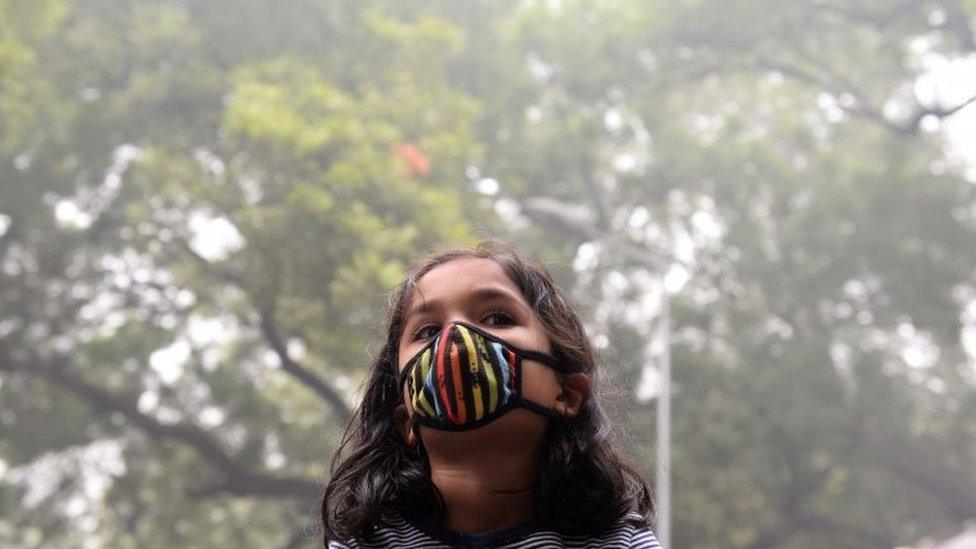
Masks come in a variety of designs and colours but with stock selling out people are not picky
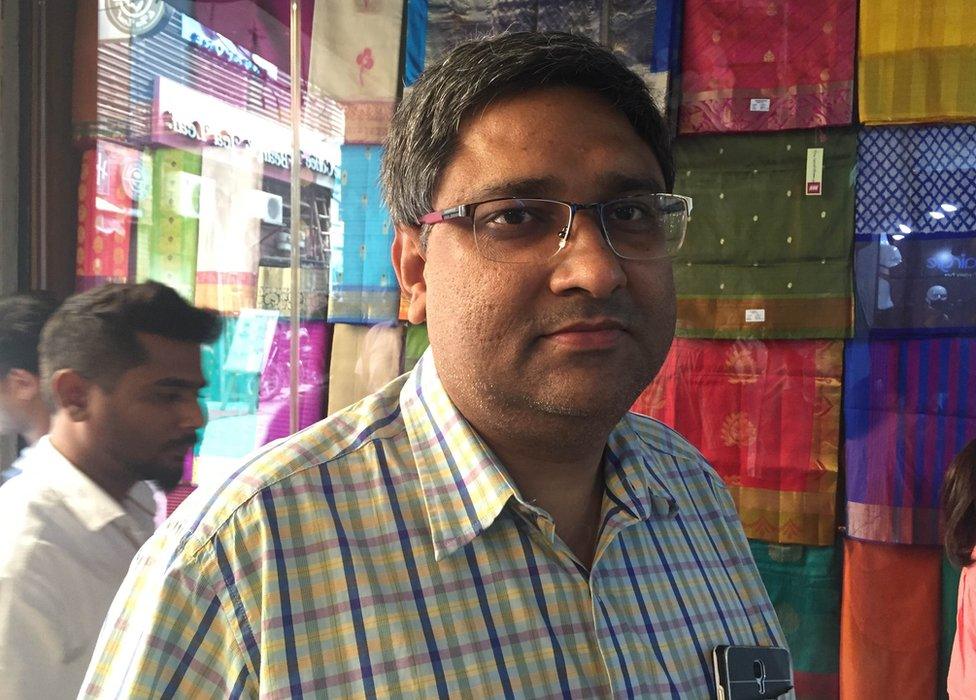
Mrityunjay Kumar is angry with the government's inaction on pollution
Schools have been shut and people have been advised to work from home. Most people said that they had no other choice but to buy face masks and air purifiers.
"What else can I do? The government doesn't do anything to protect us, so I will do whatever I can to protect my family. I am starting with buying masks for my entire family," Mrityunjay Kumar, a lawyer, says.
'Chemical warfare'
Mr Gupta shares Mr Kumar's frustration.
"The government has failed to take simple steps like banning firecrackers, diesel cars and penalising farmers who set agricultural waste on fire," Mr Gupta adds.
"I feel like somebody has waged chemical warfare in the city."
Foreign nationals living in the city are also queuing up at shops to buy face masks.
Josh Hoffman, a US national who has been living in Delhi for extended periods, says that "this year the air been particularly toxic".
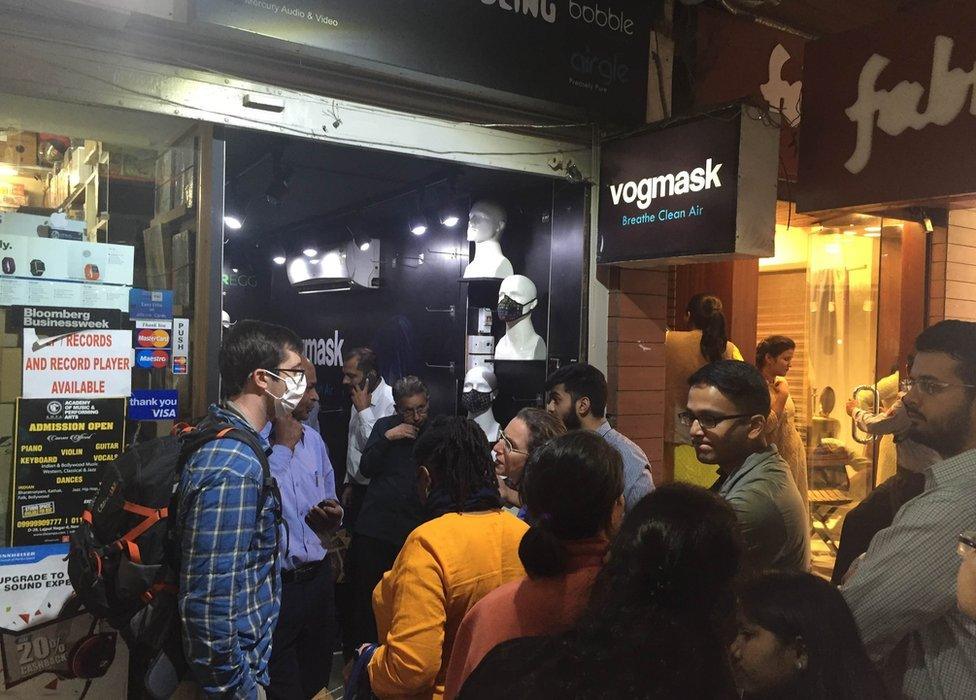
Shops have run out of masks
"I ride a motorbike and I thought a face mask may help me and that is why I am standing in this line," he says.
But can face masks and air purifiers be the solution to Delhi's pollution woes?
"No, these things only bring temporary relief and not everybody can afford them. We need permanent solutions and it starts with educating the public about the harmful impact of breathing this air," says environmental activist Barun Aggarwal, who also imports and sells Cambridge Masks in India.
He adds that people "don't understand that toxic air can cause lung cancer and other fatal ailments".
"We need to educate the public, so they take actions like not buying diesel cars and cutting trees," he says.
Mr Aggarwal agrees that the air quality worsens in winters in Delhi every year, but adds that "it's not that we breathe clean air for the rest of the year".
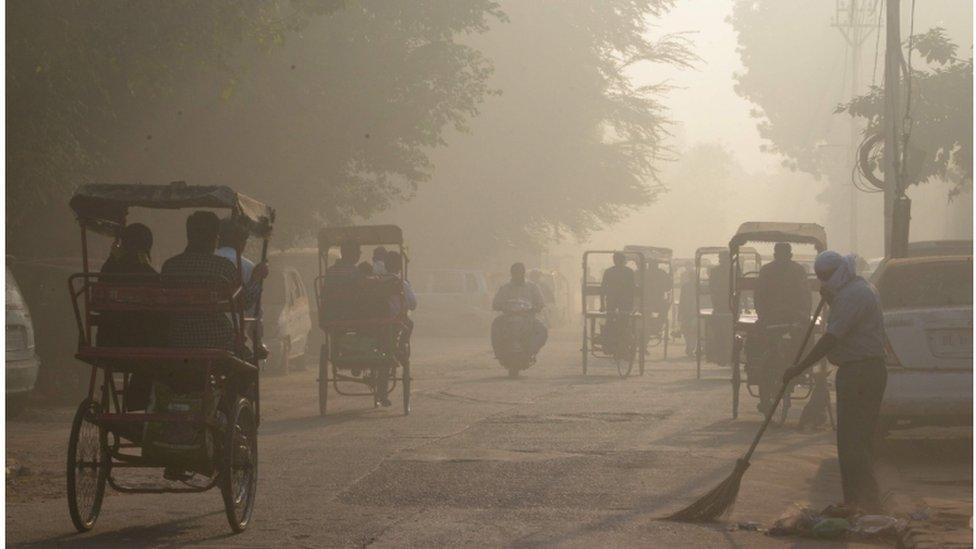
Delhi's already serious air pollution has worsened in recent weeks
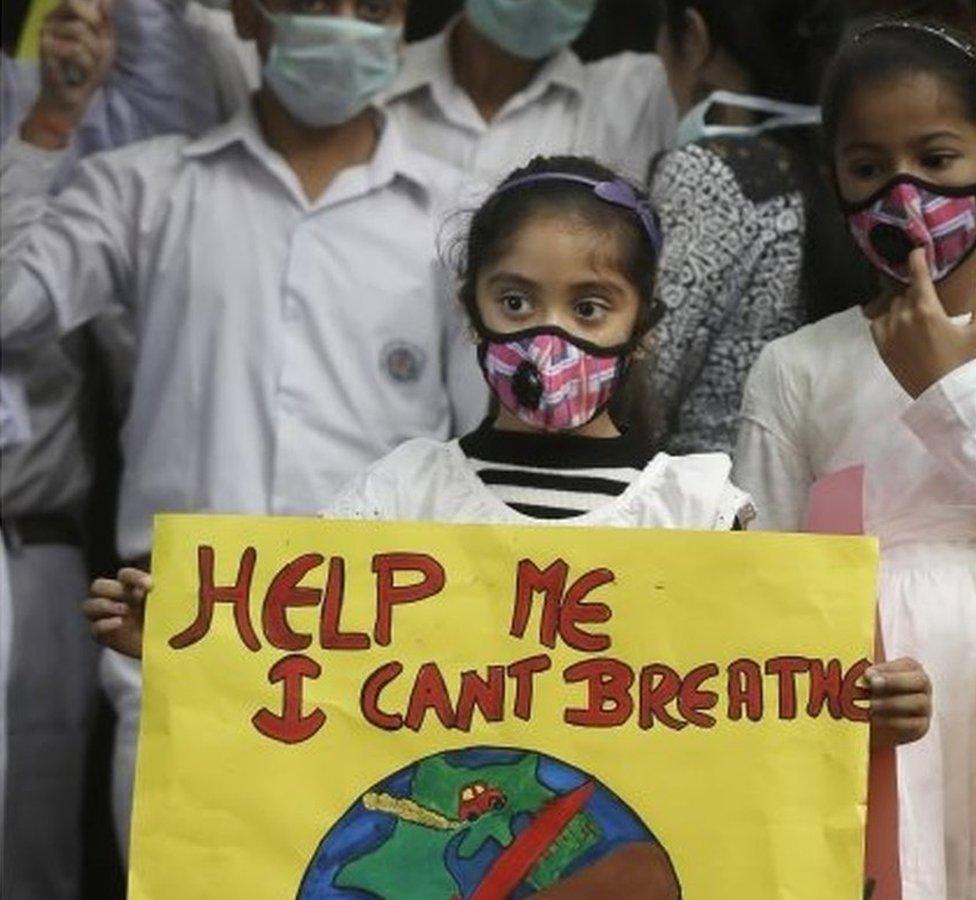
Suppliers are running out of stocks of masks
His firm is also facing a massive demand for face masks, but he is "not happy" about it.
"You may find this odd. But I think we need to look beyond air purifiers and masks. Take air purifiers for examples, the filters in them choke in a year and become unusable. In most cases, they are burnt, creating more pollution," he says.
The government needs to find permanent solutions to Delhi's pollution problems, otherwise queues at face mask shops won't go anywhere anytime soon.